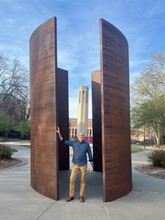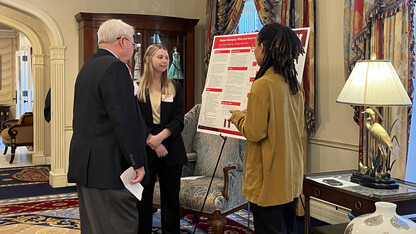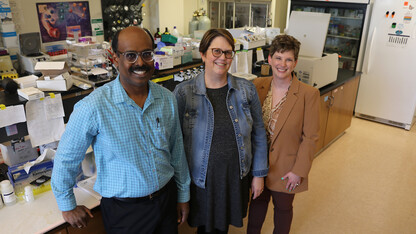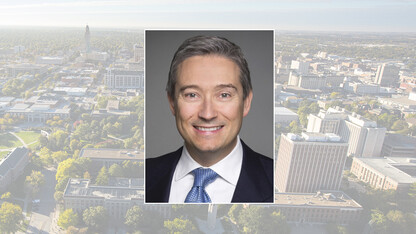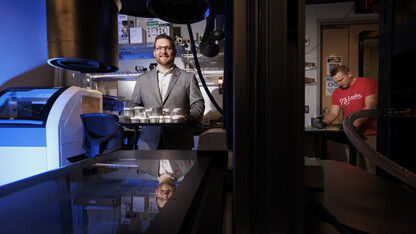· 3 min read
Baffled by math? Professor aims to help audience figure it out
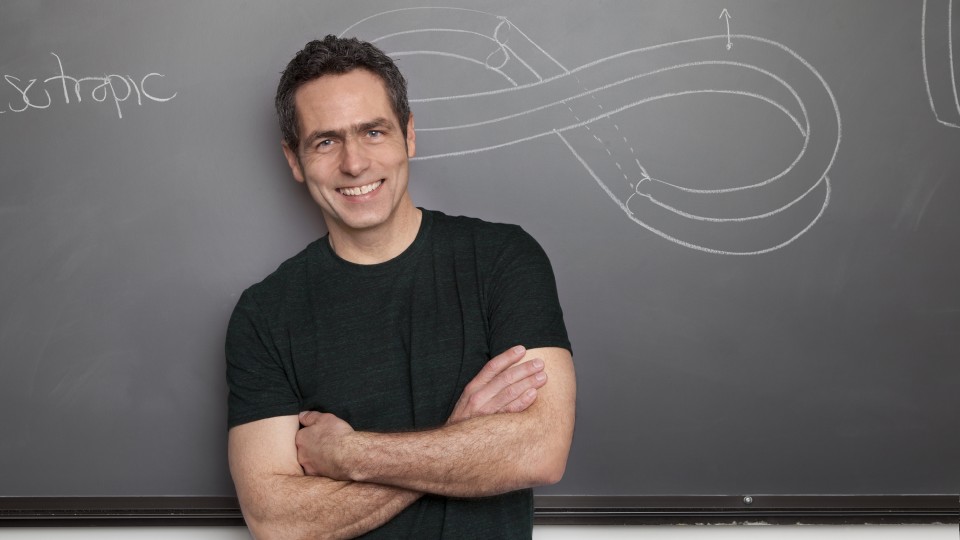
Stumped by the latest math puzzle making its way around Facebook? The solution might be easier than you think.
Renowned mathematician Mike Hopkins will explore how understanding certain mathematical rules can help solve mind-bending puzzles without actually racking the brain during a Nov. 14 public talk.
Hopkins will present “Mathematical Invariants: How to Know the Answer in Advance” at 4:30 p.m. in the Nebraska Union auditorium. The event is free and open to the public and will be streamed live at http://go.unl.edu/hopkins.
Hopkins plans to take the audience into the world of mathematical invariants and help them understand how to recognize these fixed properties and use them to predict the outcome of puzzles and problems.
It may sound far-flung to those that aren’t mathematicians, but Hopkins, a professor at Harvard University, said his presentation is fun and interactive. Participants will leave with new knowledge about invariants and also a better understanding of how mathematicians experience mathematics so that they can be more open to experiencing it themselves, Hopkins said.
“People often react to hearing about ideas in math by saying ‘I don’t get it,’” he said. “But they never say that about listening to music. In some sense, my goal is to tell the story of the music inside the mathematics, and not the story of elaborate chains of technical reasoning.”
Hopkins’ lecture is his third of six planned stops at UNL as a visiting research professor. He is in the midst of a three-year agreement with the university that allows him to visit for a week each fall and spring semester to teach workshops to graduate students and collaborate on research.
Hopkins earned undergraduate and graduate degrees from Northwestern University and a doctorate of philosophy from Oxford University. Before his appointment at Harvard, Hopkins taught at the Massachusetts Institute of Technology, Princeton University and the University of Chicago. He has focused his career on algebraic topology, a branch of mathematics that uses abstract algebra to study topological spaces. Part of algebraic topology is finding invariants. He also was part of a team of three mathematicians who solved the Kervaire invariant problem in 2009. He is a member of the National Academy of Sciences and earned its 2012 Award in Mathematics, which is granted every four years.
An Omaha Westside High School graduate, Hopkins said he enjoys working with UNL students and faculty.
“The benefit is getting to know the students and working with students that I otherwise wouldn’t ordinarily meet,” he said. “The students here are really terrific and I’m having a blast getting to know them. It gives me an opportunity to create mathematical output that I wouldn’t ordinarily create because it’s tailored to the interests of these students.”


